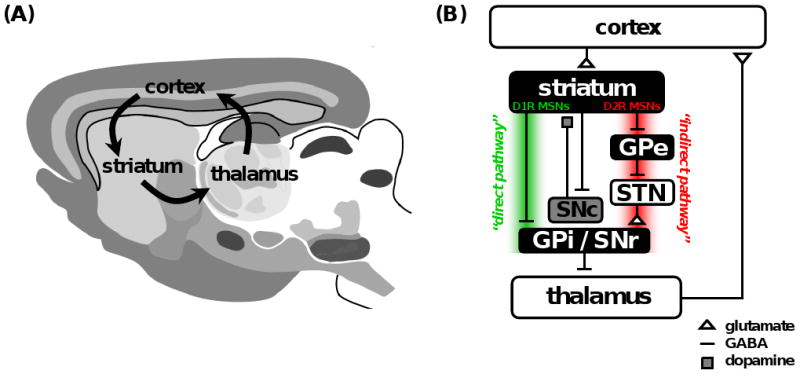Fig. (1). The Cortico-striatal-thalamo-cortical loop is a major site of synaptic dysfunction in OCD.

(A) Diagram of a mouse brain (sagittal view) illustrating the major brain regions that compose the CSTC loop. Hyperactivity in specific cortical-subcortical loops involving areas such as the orbitofrontal cortex is hypothesized to lead to the expression of OCD symptoms. (B) Simplified circuit diagram of the CSTC loop in mammals. MSN, medium spiny neuron; GPe, globus pallidus pars externalis; GPi, globus pallidus pars internalis; SNc, substantia nigra pars compacta; SNr, substantia nigra pars reticulate; STN, subthalamic nucleus; D1R, D1-type dopamine receptor; D2R, D2-type dopamine receptor. Panel (A) adapted from [32].
